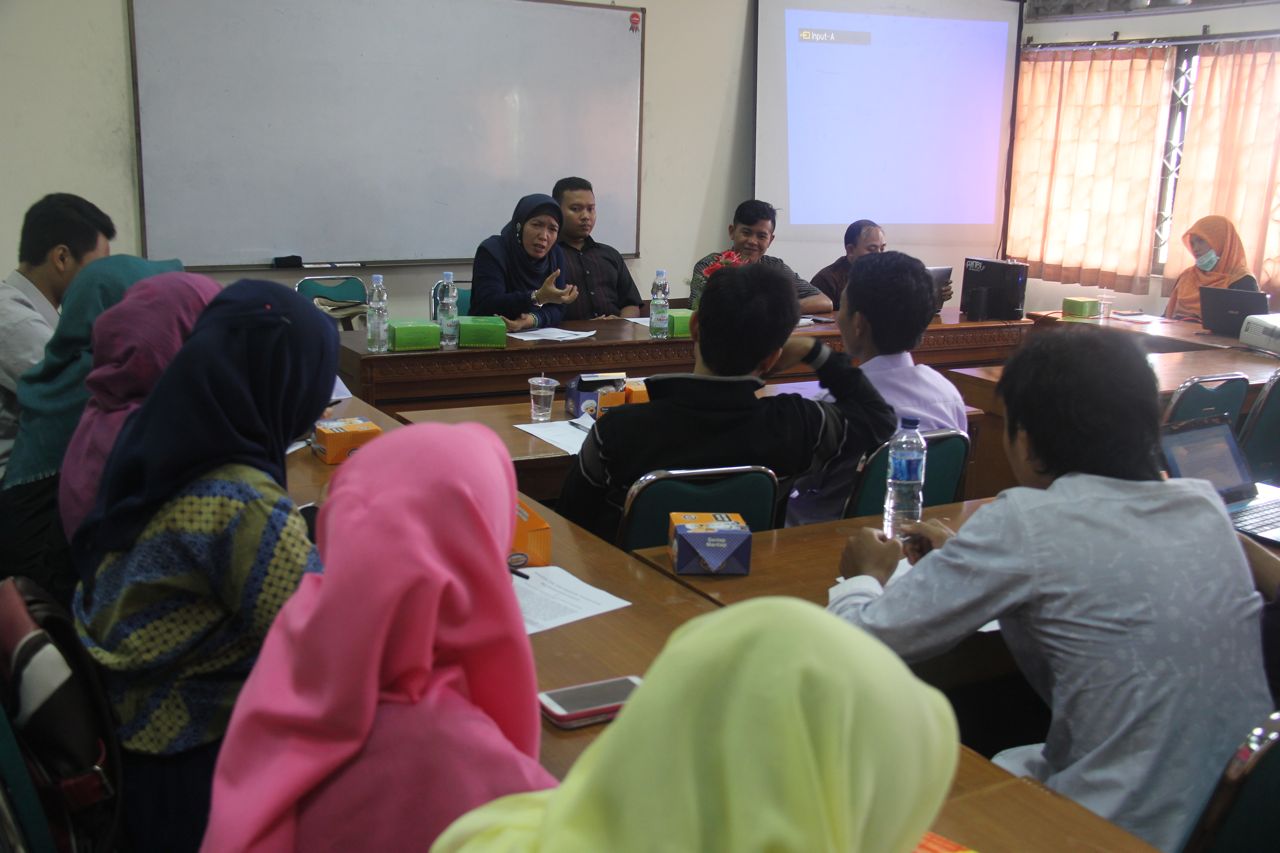Rupiah has been getting depreciation since the beginning of 2015. Government also does not give any definite confirmation of rupiah currency appreciation toward US dollar. The circumstance may affect several parties to use dollar as transaction currency. In fact, employing dollar for transaction may weaken rupiah exchange rate.
“Thus, public may always use rupiah for commerce to reinforce the rupiah exchange rate,” stated Lilies Setyartiti, S.E., M.Si., a lecturer of Economics Faculty of UMY in a public discussion on Thursday (8/9) at a classroom of IPIEF A, Building E, Floor 2. The discussion raised a theme of ‘Weakening of Rupiah Exchange Rate and Crisis Threats for Indonesian Economy’. Lilis argued that most of Indonesia people prefer employing dollar than rupiah. They perceive security because dollar currency stagnates.
See inserted that the circumstance drive rupiah exchange rates to dollar get more weakening, indeed, and it will affect businessmen focusing on import system. “Parties incurring losses are importers of raw materials to be produced to be real goods and to be sold in this country, for instance ‘tempe’ businessmen importing soybean,” Lilis conveyed.
Instable and unpredictable rupiah exchange rate is the impact of floating Indonesia economic system. “However, 70% of markets in Indonesia are held by foreign parties. Therefore, weakening of rupiah may also lead foreign investors to leaving, and it may make Indonesia markets collapse,” she elucidated. She added that it is essential for Indonesian people to evolve the human resources in investment sector.
Furthermore, a young economist of UMY Hafid Khoir Maulana asserted that Indonesia economic growth can be supported by consumption of local products. “Indonesia people tend to be consumptive, and most of them consume import products which may weaken local products,” he contended. Indonesian produces may enhance domestic quality products while Indonesian consumers may assist them by consuming the local products.
“Indonesia people have been empowering export, but they export raw materials while they import finished goods. In fact, export price of raw materials is cheaper than exported finished goods price,” affirmed Hafid. Hence, Indonesian exports may not bring significant impacts for Indonesia economic growth.






